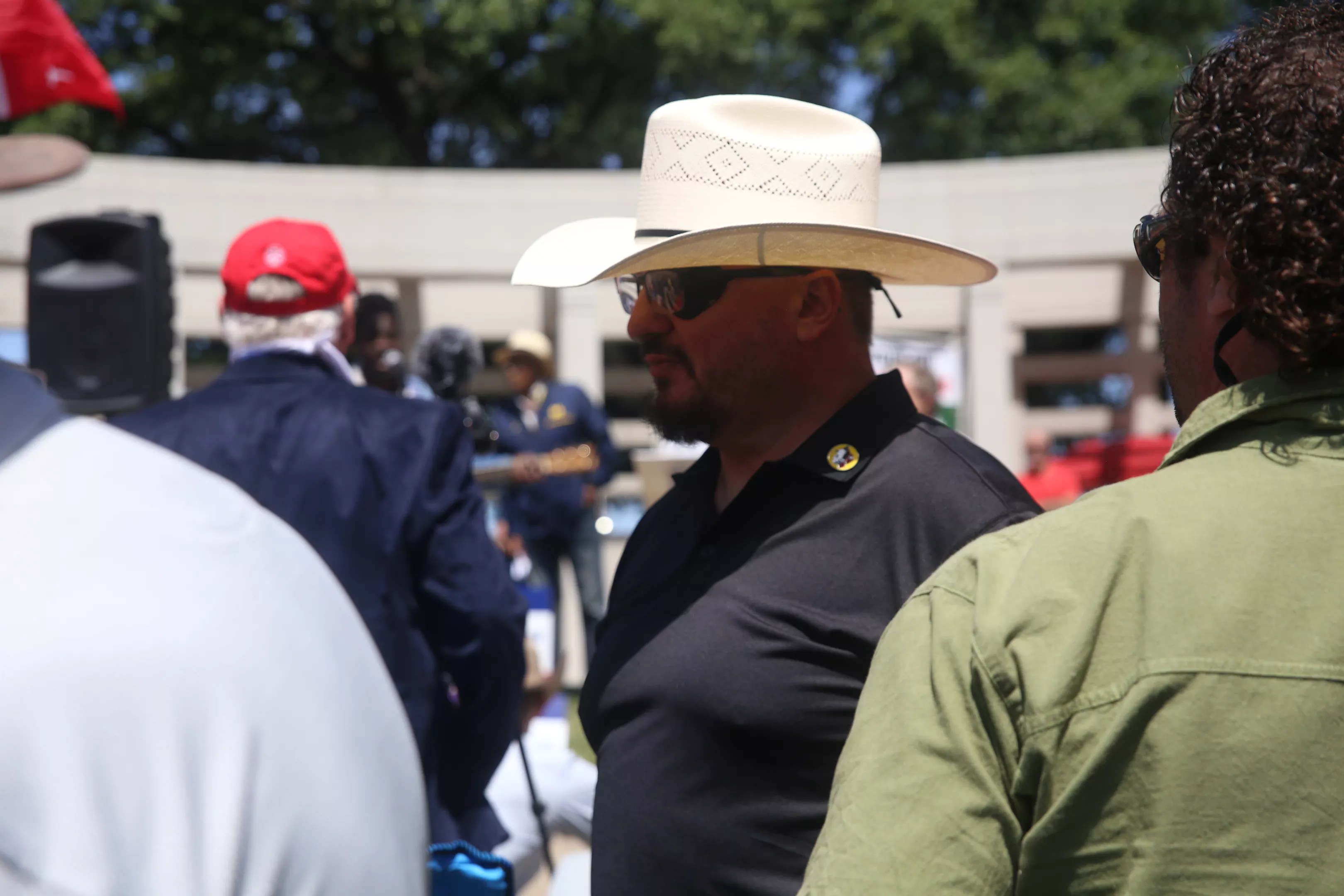
Jacob Vaughn

Audio By Carbonatix
Soon after being sworn-in on Monday, President Donald Trump signed a proclamation granting clemency to more than 1,500 charged in connection to the Jan. 6, 2021 Capitol insurrection.
It had long been expected that Trump would grant clemency to many Jan. 6 participants charged with nonviolent offenses, but the scope of the proclamation extended far beyond that to include offenders found guilty of sedition as well as violent felonies against law enforcement officers.
The two men with the longest sentences related to Jan. 6 convictions, Proud Boys leader Enrique Terrio and Oath Keepers founder Stewart Rhodes, a Granbury resident, were released from prison by Tuesday morning, according to reports. Rhodes was sentenced to 18 years in federal prison in May 2023 for seditious conspiracy, among other charges.
“There have been few instances in our nation’s history when our fellow citizens have engaged in a seditious conspiracy – a conspiracy to use force to oppose the functioning of our government,” said U.S. Attorney Matthew M. Graves for the District of Columbia in a 2023 statement upon Rhodes’ sentencing.
The release of the prisoners that Trump called “hostages” during Monday’s inauguration activities was one of many so-called “Day 1” promises Trump made in the run-up to Jan. 20, along with executive orders aimed at restricting border access and rescinding a number of former President Joe Biden’s executive orders.
On Monday night The New York Times wrote about Trump’s apparent change of heart.
“Mr. Trump appears to have decided to grant an expansive form of clemency relatively recently and after a debate among his advisers,” the report reads. “In recent months, he has said different things to different people about how he planned to proceed, sometimes suggesting he would grant pardons to violent offenders, sometimes indicating that they would be reserved for those who did not act violently and were only charged with misdemeanors.”
But on Monday in the Oval Office, Trump issued a short, blanket statement when referring to those charged with Jan. 6 crimes, saying, “They’ve already been in jail for a long time. These people have been destroyed.”
The release of Rhodes also represents a new danger to his own family. According to Rhodes’ ex-wife in a recent USA Today report, she said she would for her own life and that of her children should Rhodes be one of the prisoners released after Inauguration Day.
According to the Southern Poverty Law Center (SPLC), the Oath Keepers is one of the many extremist groups active in Texas today.
“The Oath Keepers organization claims to be defending the U.S. Constitution and fighting tyranny, but as former Oath Keepers spokesman Jason Van Tatenhove describes, the group is actually ‘selling the revolution.'” states the SPLC. “The threats to American liberties that Oath Keepers say the federal government is responsible for are in reality a set of baseless conspiracy theories.”
A number of North Texas residents were in prison as of Monday, with their release now seemingly imminent. Texas was amongst the leading states in the number of residents arrested for their roles in the Capitol attack that sought to keep Congress from certifying the 2020 election of Joe Biden.